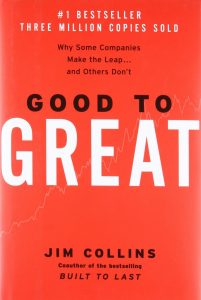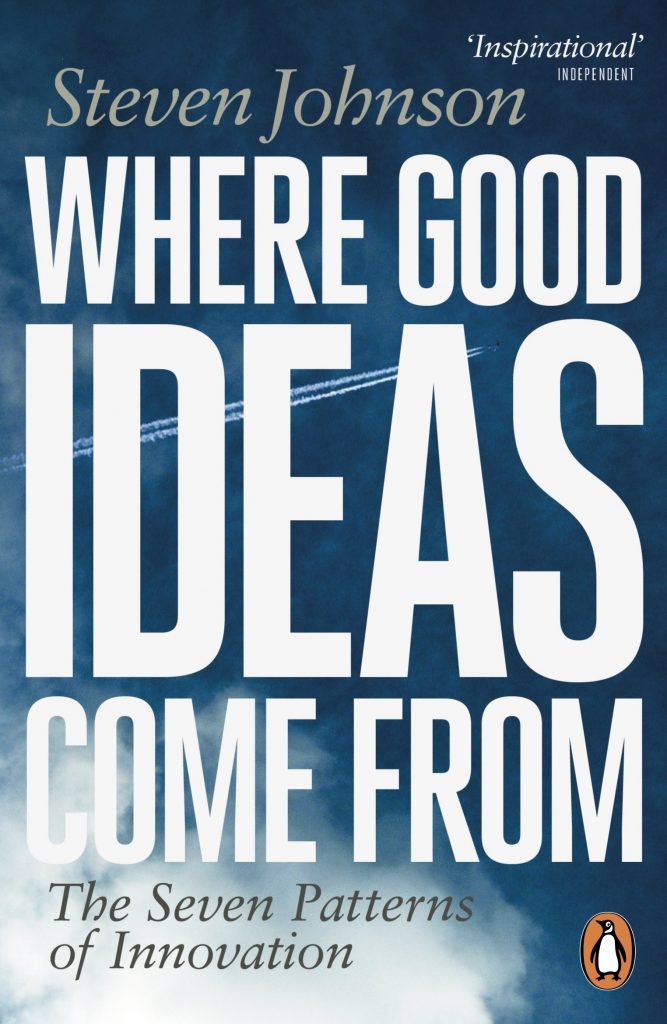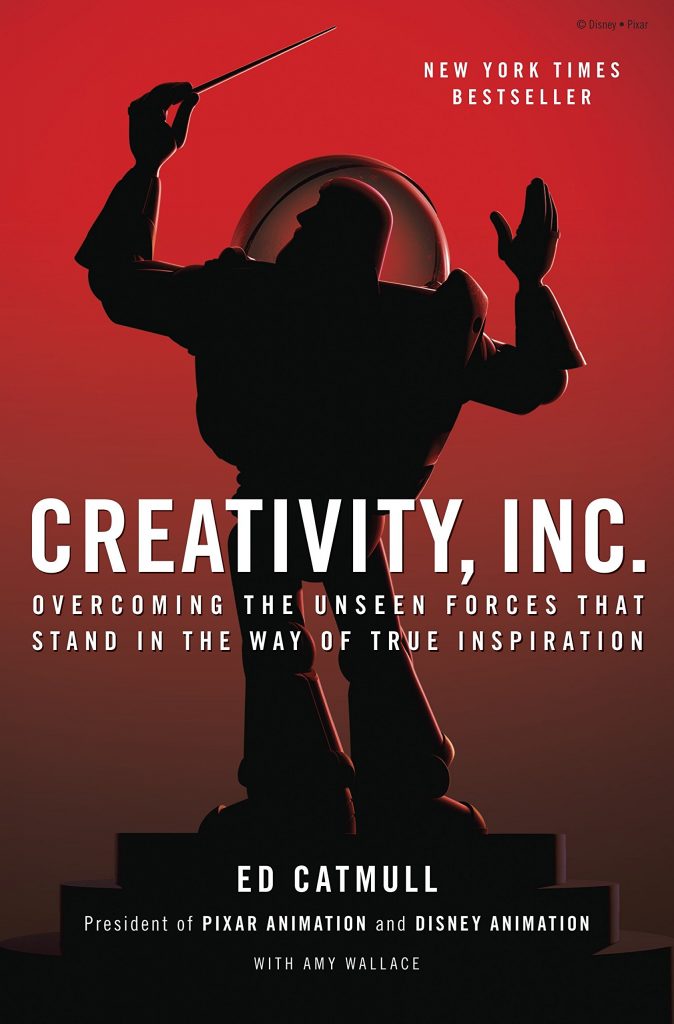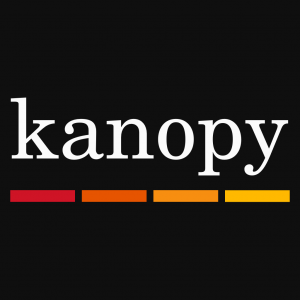Summer professional readings

Looking for something to read this August – whiling the time away with your toes between the sand, the sound of waves splashing, and the sun warming up your bones? I know a summer read is normally something a bit fluffier, however you might want to read one these top reads that were recommended at two conferences I attended recently here on campus (Professional Services Conference and the SAgE PGR Conference). All three books are conveniently available for you to loan from Newcastle University Library…click on the book cover to take you to the library catalogue entry:
New service helps you search beyond our Library

A new search service, Library Hub Discover, has just launched, replacing the old COPAC database (which enabled you to search across UK academic and research libraries) and SUNCAT (which searched for journals elsewhere).
Library Hub Discover offers a new and improved interface to search across the catalogues of 100 UK and Irish academic, national and specialist libraries, with many more libraries due to be added soon.
A new related service, Library Hub Compare, enables you to analyse and compare library collections and identify relative strengths. So, if you want to assess which libraries in a region have particularly strong holdings relating to your research area, this is a neat way of doing it.
Read more about the new services and keep up with developments by following JiscLibraryHub.
Be wise – start thinking about your Reading Lists
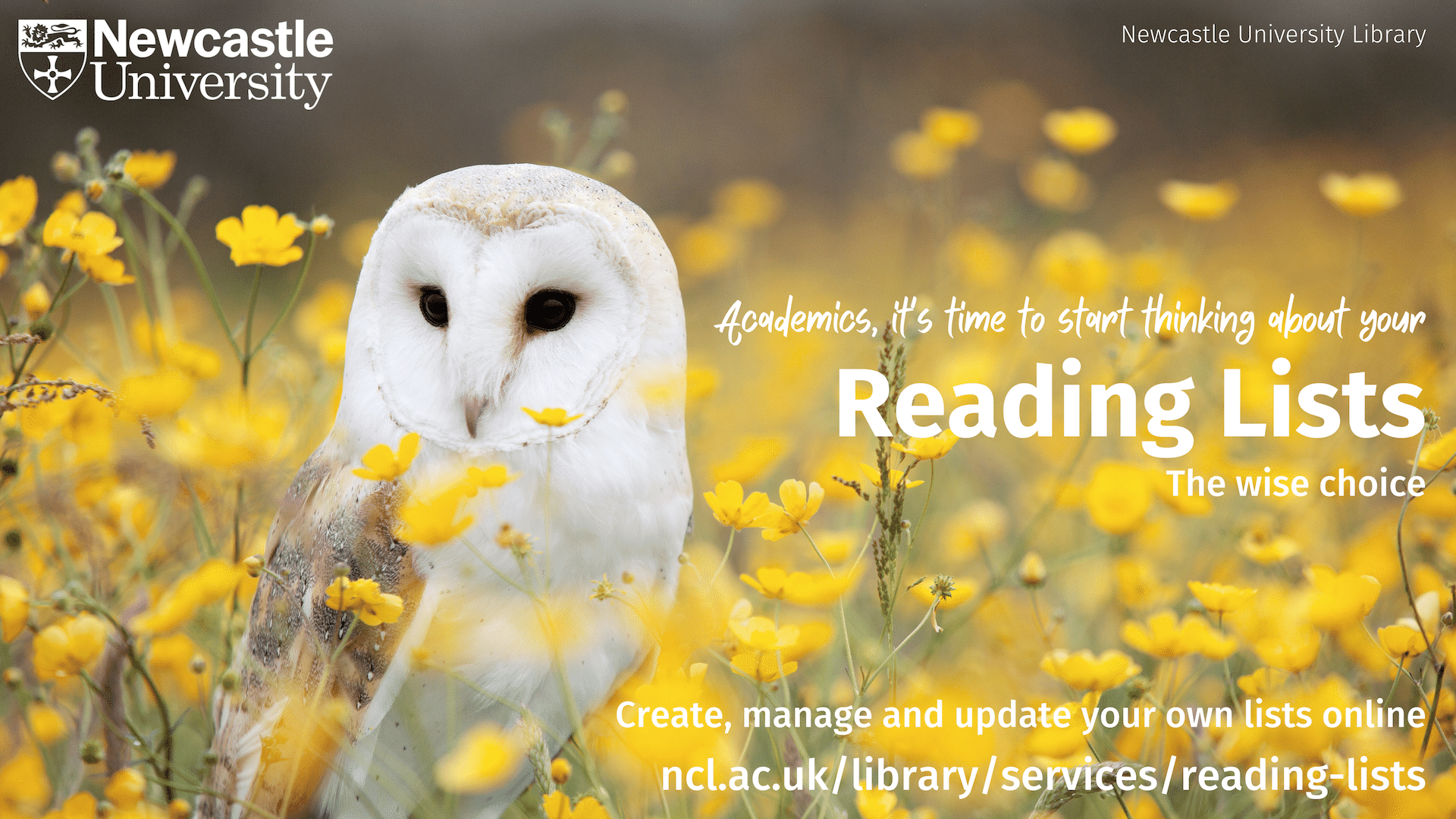
Although it’s now the summer vacation, it is time for our academics to start thinking about the reading lists for 2019/20. So, what resources are you going to recommend to your students to support your teaching? How will you ensure the Library has what you need in stock?
Use the Library’s Reading Lists to create, manage and update your own lists online. Or, you can send your list as an attachment to your Library’s Reading List team using our submission form.
Why use this service? Well, your lists will help the Library to order the correct number of copies of the titles you want to recommend, to decide on the appropriate loan periods of those printed books and enable access to electronic resources for your students. CLA scans (digitised book chapters and articles) can easily be requested through Reading Lists too. There’s no need to email us or fill out a separate request form; simply tag the item on your list and leave it to us.
Benefits for you include:
- Your book orders and scanning requests will be dealt with seamlessly by a dedicated team of Library Staff.
- It is an effective and efficient way of getting your Reading Lists to your students via Blackboard, alongside your teaching materials.
- You can add resources from Library Search, any database or while you’re browsing the Web (via the “Cite it” tool).
- You will provide accessible information to your students about their required reading, with live links to Library Search, eBooks, full-text journal articles and book chapters.
- You can organise the resources to suit your needs, e.g. by week, topic, lecture or seminar.
- You can tag the items on your Reading Lists so your students can clearly see what is essential, recommended or background reading.
- In tagging each item, the Library can ensure appropriate stock provision for your students based on module numbers.
- You can notify the Library and your students of any changes you wish to make to your lists automatically.
- Reading Lists can boost student engagement with your subject and you can see the access statistics for the items on your list, providing valuable insight on how the students are using the materials listed.
So, Reading Lists are a great way to let your students know what they need to read, and to keep the Library informed too; they are the wise choice.
You can find information about creating and managing your Reading Lists, and making resources available to your students here. And if you have any questions about this service, please do contact us at readinglists@ncl.ac.uk
Have a good summer!
Change is coming to the Philip Robinson Library
This summer will see the refurbishment of key features of our main Level 2 space as we make it more welcoming, attractive, and efficient for all library users.
Work will be taking place between June and September 2019, during which a temporary service desk will be in place, and the Student Text Collection, exhibition space, book bins, and self-service units will be relocated. Drinks and snacks will still be available from a coffee cart whilst the café is being refurbished.
Library services will continue as normal.

- The PC cluster, Your Space and silent study areas on Levels 3 & 4 of the library will remain accessible.
- Student Text Collection texts and book reservations will be available.
- Inter Library Loan and Research Reserve requests will be processed as normal.
- You will still be able to issue and return items yourself.
- Laptop, headphone, and short-term locker loans will be issued as normal.
However, there will be building work in progress during library opening times and there will be some noisy periods. Free disposable earplugs will be available at the Service Desk.
Alternative study spaces are available in Walton, Law and Marjorie Robinson Library Rooms, and you can use the Find a PC on the University app to locate alternative cluster PC’s and check availability.
Building a better library experience
The modernised Level 2 space includes these new features:
- a redesigned ‘Welcome’ point and ‘Library Help’ desk.
- a reconfigured social learning space
- an automated book returns sorter and new self-issue machines
- a relocated exhibition space
- a fully refurbished cafe
The works are due to begin week commencing 17th June. If you have any queries please speak to a member of Customer Services staff at the Service Desk or via Library Help.
We Are Here All Summer!

pixabay
The University libraries will be open throughout the Summer vacation, you a can find the opening hours for each library here. Please note that during self-service times, access to the building will be by Newcastle University Smartcard only.
However, there will be building work in progress during library opening times and there may be some noisy periods in some areas. Free disposable earplugs will be available at the Service Desk.
You will still find the Liaison team on levels 3 and 4 of the Philip Robinson Library – we will be the ones wearing hard hats!
You can come to us for Endnote support and 1-1 sessions. Please book an appointment via Library help.
If you have an urgent question, and we are not physically around you will find 24/7 support via our out-of-hours Live Chat Service provided by a co-operative of academic librarians from around the world.
We hope you have a lovely summer!
Identify resources for your research project
A strong research project such as an essay, dissertation or thesis will always be supported by good quality information from a wide range of sources. There are a huge variety of resources available to you and being able to make appropriate choices when selecting materials to include in your project and explain why you have chosen them, is an important academic skill that demonstrates a good awareness of your subject and an ability to think critically about ideas and research.
Of course, not all information resources will be relevant to your particular research. You will have to think about the type of information you need then identify the type of resource that will provide that kind information.
For example:
Books will offer an in-depth overview of popular ideas, theories, and opinions in your subject area and are likely to be broader in scope than a journal article or conference paper.
While a conference paper will often discuss ‘work-in-progress’, and therefore can be an ideal way of finding out about up to date research and ideas.
For more information on different resource types, including standards, patents, maps, newspapers and more, take a look at our range of Resource guides.
Your Subject Guide can also help you identify useful sources of information for your research as it contains a carefully curated list of resources that are tailored to your subject area. Here you’ll find useful lists of online reference books, eBook collections and recommended databases for finding relevant journal articles and conference papers. Also, under the Subject Specific Resources tab, you’ll discover a further host of specialised materials relevant to your subject such as audiovisual media, data-sets or professional organisation’s websites.
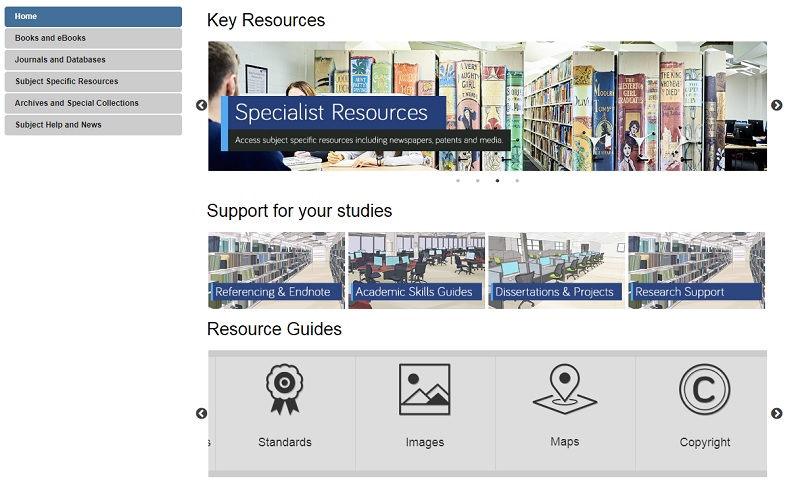
Depending on your research topic, you might also want to explore the Special Collections tab to see materials held in our Library archives that are relevant to your subject area specifically.
For more advice on finding and evaluating resources for your research take a look at our Finding Information and Evaluating Information Guides.
Brush up on your search skills

Searching should be easy, right? We do it all the time in our day to day lives and with Google so ingrained into our existence, we don’t give it much thought. We type some words into the search engine and most of the time we find what we are looking for. Nothing to it!
However, while this approach certainly works for checking out cinema times or booking flights, it lets us down where research is concerned. We have high expectations that information will be quick and easy to come by and that it will be neatly organised in one place, rather than having to search in multiple locations, using different techniques. We imagine that the time consuming part of our research will be the analysing, synthesizing and the writing of it and we often don’t even think about the searching side of things.
The reality though is quite different. Without investing in our searching techniques and the development of a search plan, we can often find ourselves overwhelmed by information and not being able to see the wood from the trees. Our stress levels rise and our frustrations explode. Surely finding information shouldn’t be this hard!
The good news is, is that there is help to be had. Our job as Liaison Librarians is to equip you with the skills you need to create that all important search plan and to encourage you to pause and stop before you dive straight into finding information for your research.We have a fantastic range of online tools for you to do this, not least an interactive search planner that you can keep adding to throughout your search and which you can even email to yourself, supervisor or us as a Liaison team for feedback. And our ‘Finding Information’ academic skills guide has lots of advice on how to start a search, including how to break your concept down into manageable chunks and how to identify keywords and synonyms.
You can also check out this short video to get you started…….
Keep your eyes peeled for our next blog installment of how to find particular resources. See you then!
Photo by Debby Hudson on Unsplash
Beyond the Library

Will you be working on a dissertation or project this summer or next year? Worried that the Library might not have access to the specialist books and other resources which you need? Wondering how you can find out about resources relating to your research topic which are held in other libraries?
Wonder no more! There are three main ways you can find and access books and other resources held elsewhere:
1. Search
You can search the catalogues of over 100 UK and Irish academic libraries, national libraries and other major research libraries via COPAC. For a more in-depth and up to date search, you can also search individual academic library catalogues online. Need to look further afield? Search library catalogues internationally via WorldCat.
2. Visit
We have more information about how you can visit other libraries, locally and nationally, here. The SCONUL Access Scheme enables students to use other academic libraries around the country, but you need to register online first (and be sure to check the access arrangements for any library you are planning to visit, as they may alter during the year).
3. Obtain
If we haven’t got the book you want, you can ask us to consider buying or borrowing it, via our Books on Time service. If you need a copy of a journal article to which we don’t have access, please apply via our inter library loan service.
Image by andreas160578 from Pixabay.
New resource now available: Kanopy film streaming
We’re pleased to announce that following a successful trial, we now have access to the Kanopy on-demand film-streaming platform.
Kanopy provides access to over 30,000 films, including contemporary and classic feature films from around the world, and documentaries across a range of topics in arts, social sciences, science, technology and medicine. New films are added each month, and you can watch them on your preferred device.
Kanopy is very easy to use: simply search for a film by title, or browse by category. All the films are also individually catalogued on Library Search too, so you can find and access them that way as well.
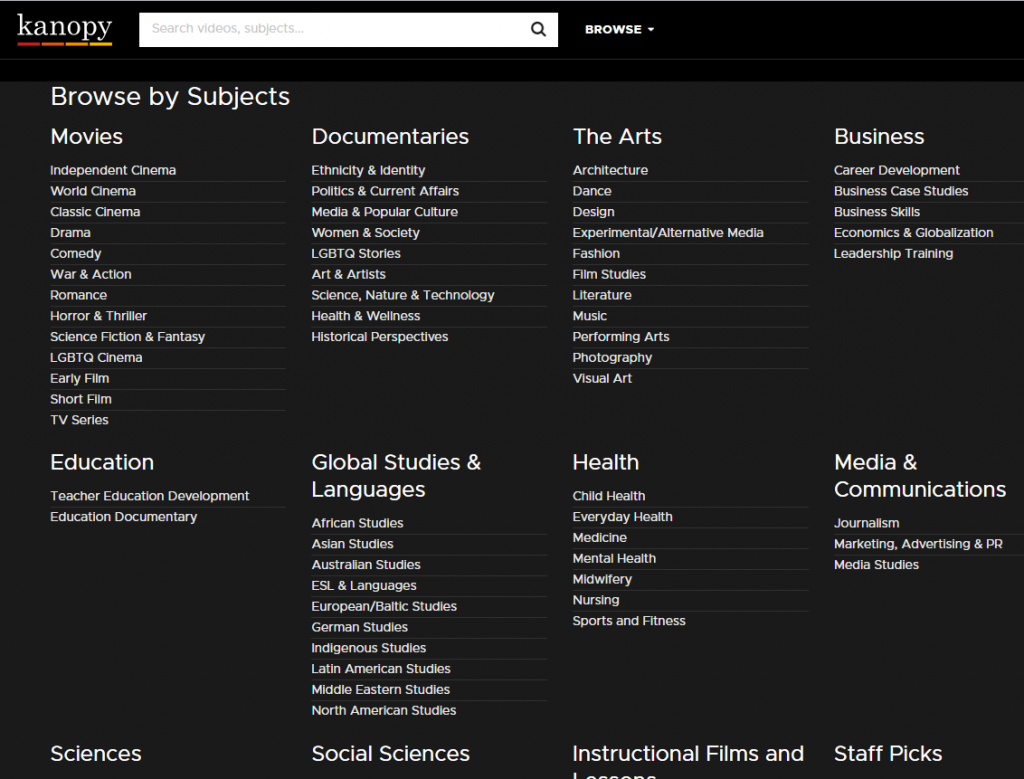
You’ll find lots of useful features, including creating clips and playlists, viewing the transcript, and rating or adding comments.

Please note, as Kanopy is a ‘pay as you go’ service, we will assess demand during an initial pilot phase. If you’ve got any feedback about Kanopy, we’d be interested to receive it: just drop us an email or post it as a comment on this blog.

